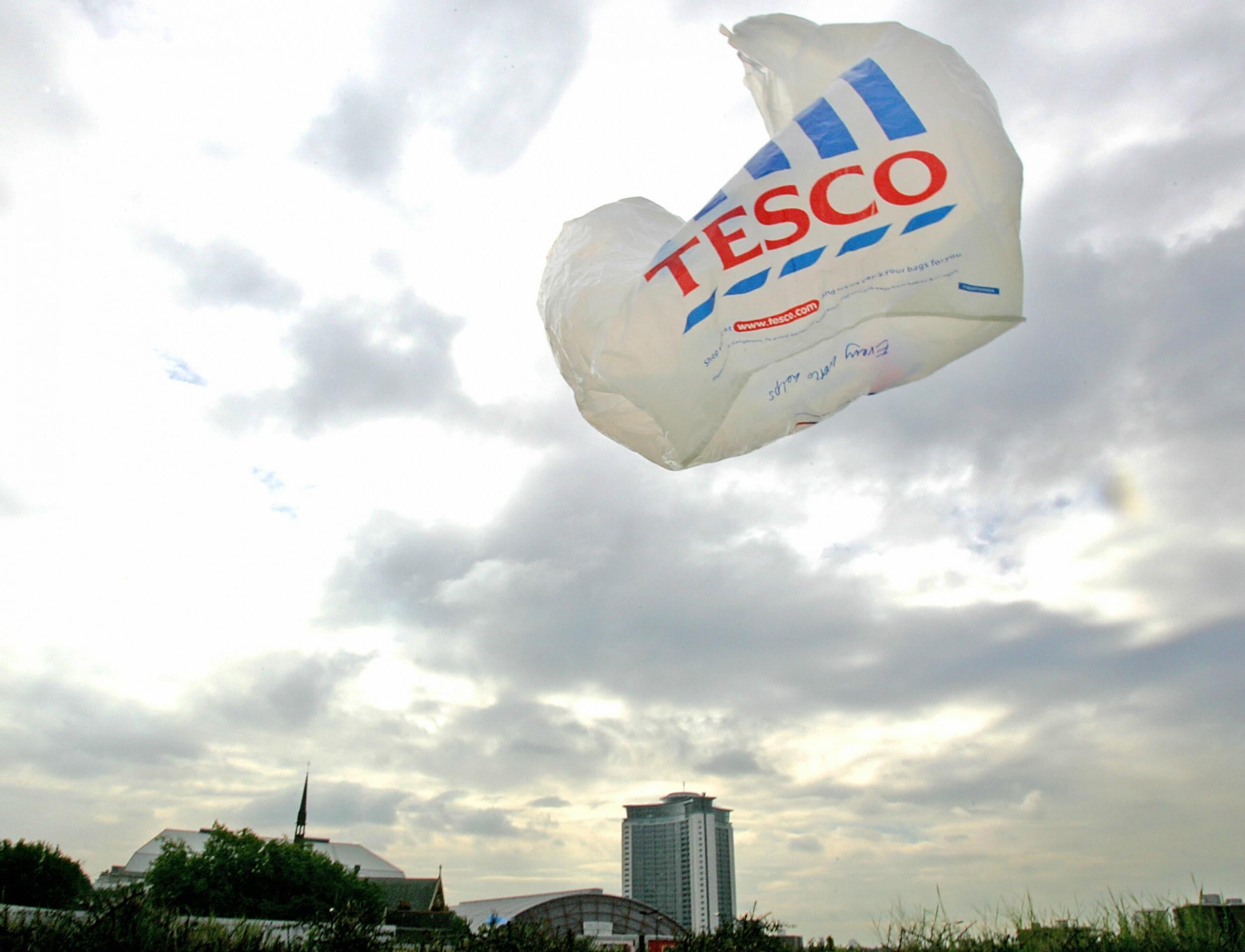Tesco to ban non-recyclable plastic packaging by 2019
Target ‘raises the bar’ for fight against pollution, but campaigners say there is a need for the supermarket giant to make a firm commitment on reducing its volume of packaging

Tesco has announced it will ban all non-recyclable plastic by 2019, in a move campaigners have cautiously welcomed as “raising the bar on problem plastics”.
The supermarket giant has called on the government to help establish a consistent recycling infrastructure that would enable a “closed loop” system in which waste is avoided altogether.
Despite the significant move by Tesco, the UK’s biggest supermarket chain has still to set a firm commitment to reduce the volume of plastic its produces and sells – unlike some of its competitors.
Speaking to suppliers at an industry event, Tesco’s chief product officer Jason Tarry said the company is “committed to reducing the total amount of packaging used across our business”.
“Ideally we would like to move to a closed loop system,” Mr Tarry said.
“We will work with our suppliers to redesign and reduce all packaging materials and, after consultation with our leading suppliers earlier this year, we will remove all packaging that is hard to recycle from our business by 2019.”
These “hard to recycle” plastics will include the PVC found in plastic film, polystyrene such as that used in pizza trays, and water-soluble bio plastics.
A spokeswoman for Tesco told The Independent this target would be for the end of 2019, and that it would not include varieties such as black plastic that are recyclable but are not widely recycled across the UK.
Mr Tarry added that Tesco “stands ready” to collaborate with the government to implement a closed loop approach to improve overall plastic recycling in the UK.
In April Tesco joined rivals including Sainsbury’s and Aldi in signing the “world first” UK plastics pact, in which they pledged to eradicate single-use plastics from packaging.
As part of this voluntary pledge, any remaining plastic in use will have to be totally recyclable by 2025.
Campaigners responded positively to Tesco’s announcement, although noted the company still has a lot to do if it intends to make good on its promises.
“As the UK’s largest grocer, Tesco could be a game-changer on plastic packaging,” said Elena Polisano, oceans campaigner at Greenpeace UK.
“By pledging to quickly eliminate some of the plastics that are difficult to recycle, it has raised the bar for action on problem plastics.”
Ms Polisano noted the inclusion of biodegradable plastics in the target, which do not address the problem of pollution due to the specific conditions required for them to break down in natural environments.
“By acknowledging that we can’t blindly replace plastics with bioplastics, some of which can also persist in the environment and harm wildlife, Tesco is committing to avoid false solutions,” she said.
Friends of the Earth plastics campaigner Julian Kirby agreed that the new announcements appeared to be “ahead of the pack”.
“It’s clearly a good thing with respect to recyclability – there is a big problem with non-recyclable packaging being put on the market,” he said.
“What’s missing is the long-term vision – we need system change, and we need all stakeholders to step out of the comfort zone of thinking we can just recycle our way out of this.”
“If we are going to end plastic pollution we need to phase out all but the most essential plastics.”
Ms Polisano said: “Tesco hasn’t set a much-needed yearly target for decreasing its volume of plastic packaging, which all supermarkets must do to curb plastic pollution.”
Iceland is currently leading the way on plastic reduction with its commitment to completely eliminate single-use plastics from its own brand products by 2023. Lidl has also committed to work towards a 20 per cent reduction by 2022.
“We are challenging all supermarkets to reduce their single-use plastic footprints in the shortest time possible, and in the meantime they should pull out all the stops to remove unnecessary and non-recyclable plastic packaging by 2019,” said Ms Polisano.
“Now we know what it’s doing to our oceans, it simply has to go.”
Join our commenting forum
Join thought-provoking conversations, follow other Independent readers and see their replies
Comments
Bookmark popover
Removed from bookmarks